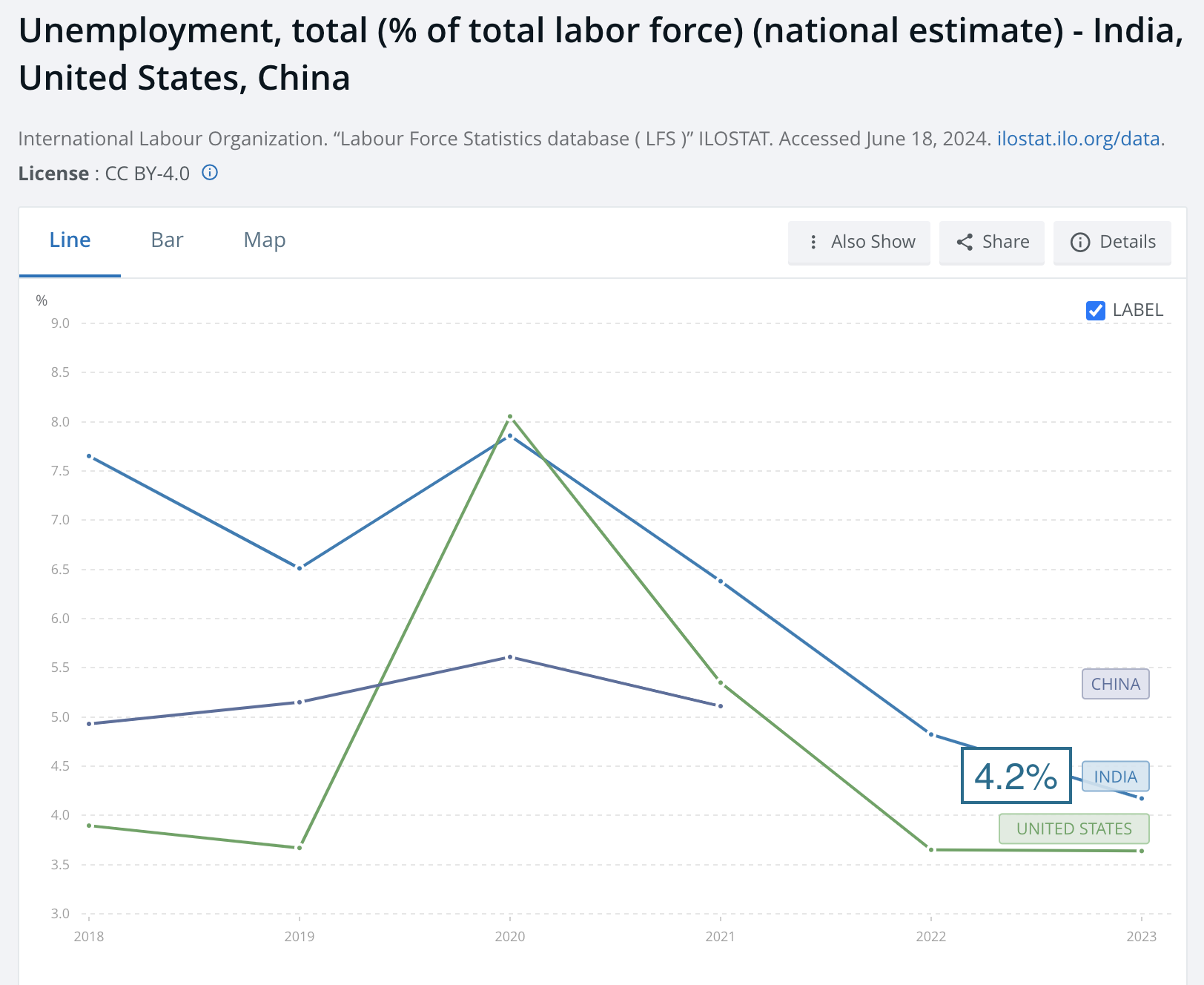hiring
Although India's unemployment has fallen since the peak during Covid, it is still higher than that of the United States and probably also that of neighbouring China (although I couldn't find metrics on that).
Assuming the numbers I am looking at are correct, it means in India you are fighting harder for the same jobs vs your counterparts in these countries. That is also what I have seen from the significantly higher number of applications I receive when looking to hire someone in India vs here in Spain.
From the hundreds of CVs I read, I saw that candidates in India are making their task of finding a job significantly difficult because of how their CV is done. Looking at that made me sad because some of them do have potential but their chances of getting a shot at an interview are low.
So here are some of my pointers on how you should build your CV. You'll notice that some of them have already been said before but I continue to see candidates make the same mistakes over and over. So I am going to say it again anyway.
Starting from the basics. When uploading your CVs, always use pdf. It not only helps you to maintain the formatting but it's also the most widely used format.
For each experience you mention in the CV always mention a couple of points on what you worked on there. And don't use generic lines like "Completed all tasks in a timely manner". That gives recruiters zero insight on whether they should schedule an interview.
Your marital status is not important for evaluating your professional skills. Plus you probably don't want to work at companies where that's an important hiring factor.
Mentioning personal details like the name of your parents or your spouse or your passport number (have seen that a couple of times) is not important and does not help.
If you have some gap in your work history, don't worry. Employers want clarity on the reason more than the gap being there in the first place. Most employers will be okay with it if they see efforts during that time. If you can, try to mention those in the CV itself.
Your aim needs to be to transfer your eligibility to the person reading your resume as fast as possible. So it's better if you skip unnecessary things like your hobbies unless those are relevant to the job profile you are applying for. For example, a social media manager applicant could be running an Instagram page on the side as a hobby.
Don't go for quantity when applying for jobs. Optimise for quality. More so if you are applying for SMEs or startups where more often than not your resume will be read by an actual person rather than a software. In that case, every personal touch you add to your CV will increase your chances of getting a reply that much more.
Something that has been said enough but surprises me on how many applicants still do it is... spelling mistakes and formatting errors. There is no excuse why you cannot get your resume checked. Heck you can just upload your resume to ChatGPT and ask it to fix errors.
Marks, grades, GPA. Only mention those on your resume if they are good. A simple rule of thumb would be above 80% until the 12th standard and above 70% during graduation.
Lastly, don't include your profile photo in the resume. I have to be honest here that I don't have any real basis for this recommendation. But in most cases, it'll work against you if recruiters judge you too quickly on things which are not relevant due to their prejudices about how you look. And in cases where it does work in your favour, it'll be for all the wrong reasons and you most likely don't want to work at a place where they hire you based on your looks.
Having said all this it's true that finding a job in India is a difficult endeavor and there will be times you feel like accepting whatever job you get. But be cognizant of the fact that the job you currently accept will be a stepping stone for another one down the road. So make sure you are stepping on the right stone.

Solving a massive problem requires efforts from a talented group of people coming together with one vision and fierce drive.
At Vermut, I am building a team of exceptional engineers who'll solve a $15 trillion problem and touch more than 100 million lives.
Join me on this wild ride.

